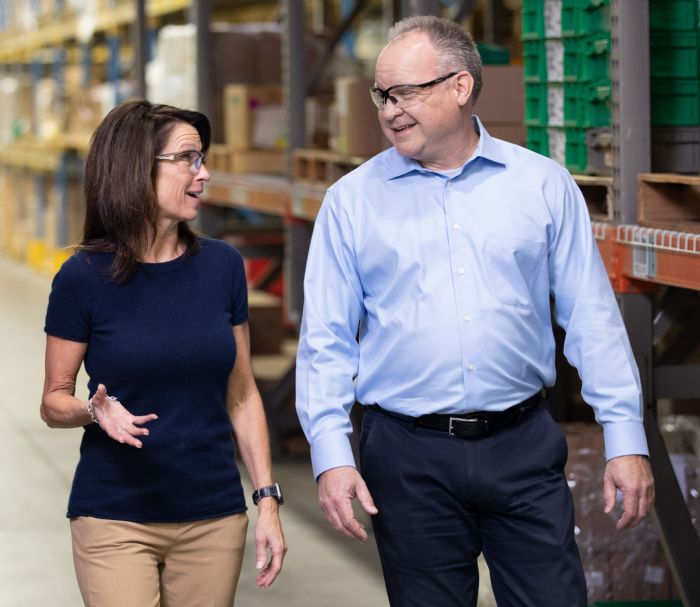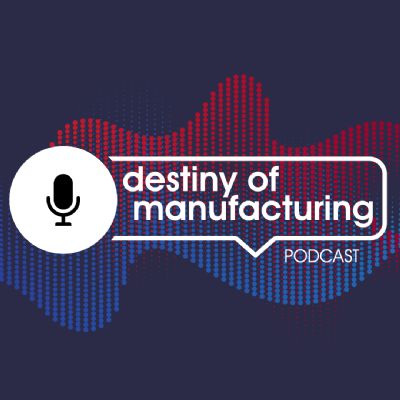Carlock: I recently read Measure What Matters, by John Doerr, helpful as I have spent the last few years working in the business, in order to truly understand how to work on the business. My key takeaway, along with our leadership team, was to better focus and commit to the company’s highest priorities. Every manager here openly shares their department’s goals with the rest of the management team, and those goals must align with the company's vision. Accountability and communication are critical to our success and sustainability, as a team and as a company. I think the book helped us all take a deep breath and refocus on our highest priorities. We reined everyone in and asked each manager to set three high-level priorities that they can work on with their teams. I want the managers to think like owners, to lead their teams as if they have an ownership stake.
Another important book for us has been The Four Disciplines of Execution. Now that I’m fully entrenched in working on the business, I felt it was time to look at things a little differently, and this book has done that.
Editor’s Note: The 4 Disciplines of Execution, by Chris McChesney, Jim Huling and Sean Covey, preaches a methodology to help companies increase their strategic execution by creating a culture of high performance. The principles:
- Focus on the wildly important—the discipline of focus.
- Act on the lead measures—the discipline of leverage.
- Keep a compelling scorecard—the discipline of engagement.
- Create a cadence of accountability—the discipline of accountability.
The book states that executing a new business plan and moving in a new direction “requires people to change their behavior. If you want to achieve goals you’ve never achieved before, you have to do things you’ve never done before.”
Q: What is the biggest challenge you face as a company leader?
Carlock: A big challenge is keeping the team’s eye on the prize and rowing in the same direction, which can be arduous but empowering our people has been key.
The pandemic drove us to adapt nearly our entire facility into a completely different line of work, moving primarily from supplying automotive customers to manufacturing PPE. Early in 2020 we landed major contracts to produce millions of face shields for hospitals and nursing homes, and to replenish the national supply. The challenges presented required a considerable amount of teamwork and brought the entire company closer together. We’ve seen minimal turnover since 2020, and I think that’s mainly due to the buy-in we got from our team and how we came together.
Q: What are two or three of the most important things you look for in a mid-level manager?
Carlock: Managers must understand people and what makes them tick. Before joining my brother to help operate Mursix (Carlock’s brother Todd Murray is president and CEO, and co-owner), I worked as an emergency-room nurse for 12 yr. I understand personalities and how to approach different people, and I know that each employee’s immediate supervisor ultimately can determine if they like or dislike their job.
In addition, managers must buy into the company’s vision and empower their teams to align with this vision. I know no other way for a company to succeed unless everyone is “drinking the Kool-Aid.”
Q: What are two things that you believe your company is doing well? What's one thing that you wish you could change?
Carlock: We are a medium-sized family company in one of the counties with the fastest declining populations in the state. We understand our role in keeping employment alive in our community and providing a safe and protective environment. Having visibility and accessibility as ownership to all employees is a value that my brother and I always will carry forward from when our father ran the business.
I believe we are thought leaders, and our company
understands the industry and where it is going, and we intend on being a part
of the future. We currently are going through a rebranding, and it has been
insightful to focus on where we want to go during the next 10 years.
In 2020 we received a DoD grant for $250,000 to work with other local manufacturers on a project dealing with the digital thread. That opened our eyes to what we have to offer when it comes to advanced technology. So now we look at our business differently; we’re more than just an automotive stamper, we’re a high-tech highly adaptable company evolving with the use of new technology.
The new servo press and rapid-prototyping capacity fit well
into this mission, as well as the purchase this year of two new 360-ton
horizontal injection-molding machines.
If I could change something, it would be delaying our
decision to focus on diversifying. We
started 3 yr. ago, and for the last 2 yr. we have been working on the ground
floor to help a new medical-device OEM launch a new product line. We are 80-percent automotive today but within
the next 5 yr. I believe we will get that down to 50 percent, primarily by
growing our medical business.
Q: How do you encourage and motivate your management team?
Carlock: The key is to empower our management team by leveraging their strengths and giving them full autonomy to solve problems and reach their goals. Encouragement begets motivation, which comes from our actions. We strive to take action and do what we say we’re going to do, which I believe is critical to earning respect and trust.
Q: Can you provide an example of a solid management decision you made during the COVID-19 pandemic, and how it helped to address a major pandemic-related challenge?
Carlock: I proudly can! The weekend Governor Holcomb deemed businesses either essential or non-essential (we were considered essential due to our work in the medical industry), we prototyped a face shield and received an order for 10,000 from a hospital in Michigan. What started with a phone call to our product-development engineer turned into making millions of face shields in our Yorktown plant and assembling them here and in two other local warehouses. We were able to retain all of our employees, and even hire an additional 300 temporary workers through the first five months of the pandemic. It was a transformative time for our people and for me.
Q: I assume it can be “lonely at the top” for you at times. How do you relax, release your stress and rise above the endless list of problems you have to deal with each day?
Carlock: I do sometimes look with envy at people who work for a company without having an ownership stake, because I take it home with me every day. Luckily, I work with my brother who has been in the family business for all of the 32 years since my father acquired it in 1990, so I’ve always had someone with the same value system with which to lead.
As my focus has shifted more toward working on the business rather than in it, I’ve come to rely more on my daily exercise routine of early-morning exercise boot camps and Pilates. That hour every morning, starting at 6 a.m., is the one thing I can do to ensure that I can handle anything that comes my way. And, of course, I rely on the relationships I have with my family and friends to help me rise above the day’s challenges.
Yes, we are responsible for the safety and employment of our people, and this can be a heavy burden. But at the end of the day, you have to know who you are and why you are doing what you’re doing. It puts things into perspective.
Technologies: Management
 This month we invite Susan Murray Carlock, co-owner and vice president of business development at Mursix Corp., Yorktown, IN, for her insights. We spoke with Carlock just as Mursix was commissioning a new 600-ton Nidec Arisa servomechanical press, the company’s first servo model and an upgrade in capacity from its 400-ton presses. At the same time, Carlock also has recently launched a 100-percent woman-owned rapid-prototyping company, set up in an area of the Mursix plant.
This month we invite Susan Murray Carlock, co-owner and vice president of business development at Mursix Corp., Yorktown, IN, for her insights. We spoke with Carlock just as Mursix was commissioning a new 600-ton Nidec Arisa servomechanical press, the company’s first servo model and an upgrade in capacity from its 400-ton presses. At the same time, Carlock also has recently launched a 100-percent woman-owned rapid-prototyping company, set up in an area of the Mursix plant.






 Podcast
Podcast